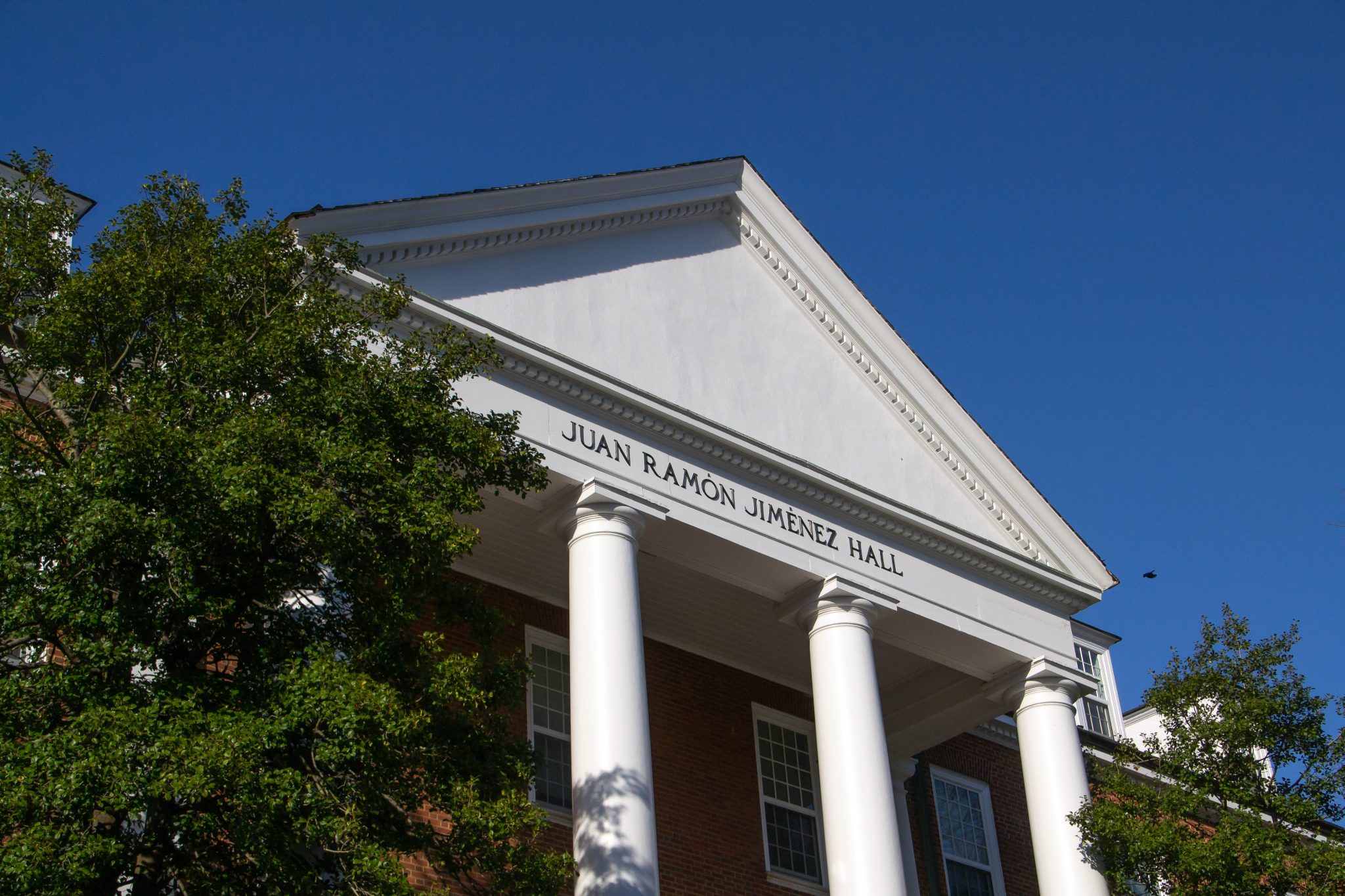A new Spanish club debuted at the University of Maryland this semester with the goal of fostering a more tight-knit community for Spanish-speaking students.
Students formed the Spanish Club in partnership with this university’s Spanish and Portuguese department. The club is intended to help fulfill one of the department’s long-term goals — to create a space for Spanish majors, minors and heritage speakers to interact with each other outside the classroom.
Spanish and Portuguese doctoral student Tatiana Chi-Miranda first proposed the club to a group of undergraduate students last spring, according to club co-founder and junior government and politics and philosophy major Francis Franch. That group — Miranda’s students — volunteered to form the group.
[‘Creciendo con amor’: UMD community celebrates beginning of Latinx Heritage Month]
“It’s fantastic that a group of undergraduate students has come together to make this happen and provide a space for them and anybody else who’s interested to learn more about Spanish and improve their language skills,” club faculty sponsor and Spanish professor Ryan Long said.
The main goal of Spanish Club is to provide students at any level of fluency a welcoming environment where they can feel comfortable building confidence in the language, according to Long. The club aims to give members a space to explore the language, as well as cultural traditions, outside the pressure of a classroom environment.
Having fun while continuing to learn language and culture is a major component of the club, Franch said.
[UMD professor to co-lead project to diversify math departments at universities]
Instead of a time-intensive Spanish language study, such as studying abroad or living in the Language House, the Spanish Club is meant to be a low-commitment alternative for those with busy schedules. Events and meetings will take place as the semester progresses based on member feedback and to maximize opportunities for students to practice language with one another.
“Learning the language is learning a different way people see the world,” Franch said. “It’s not just a language, it’s a culture.”
Future club events may include volleyball and soccer games, movie screenings and trips throughout College Park and Washington, D.C., to experience different foods and cultures.
According to Tula Lock, a sophomore Arabic and history major who is a member of Spanish Club, the group provides a welcoming environment where students can be surrounded by those with a shared interest of speaking Spanish.
One member joined the club to learn Spanish phrases they hear their roommates say, while another joined to help teach other members Spanish, Franch said.
“It’s not associated with any class and it’s more people who are genuinely interested,” Lock said. “Everyone is really just there because they want to learn more.”



